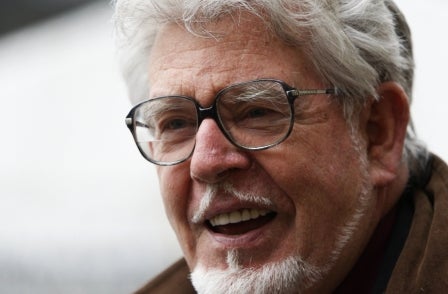
But up until Friday, journalists in the mainstream media have declined to name him because of fear of being sued for libel in case they are wrong. Police have refused to confirm his identity, exercising their discretion to keep the arrest secret – saying only that an “82 year-old man from Berkshire was arrested by officers on Operation Yewtree on suspicion of sexual offences”.
The Guido Fawkes Order-Order blog named Harris three weeks ago, but it has little to fear from libel actions because its assets and servers are not based in the UK. The Sun finally defied the legal threats to report the Harris arrest on Friday.
The Mail on Sunday today revealed a series of legal letters sent to it by lawyers Harbottle and Lewis in response to inquiries about Harris.
On 5 January, laywer Gerrard Tyrrell cited the unfounded allegations reported in the media against Lord McAlpine and Louis Walsh (both of which led to massive libel payouts) and said: “We are very surprised and indeed highly concerned to note the claims to which you refer. We note that Guido Fawkes is the only source for what has been claimed which in the circumstances is clearly conjecture on his part. The police have confirmed that they have not named the individual concerned and have no intention of doing so…
“There is no public interest in publishing such an article as is entirely self-evident following publication of the Leveson report…
“I should point out that this email is clearly marked 'Strictly Private and Confidential” and “Not for Publication”. In the circumstances, it would be wrong for The Mail on Sunday to publish any article referring to the content of our correspondence.”
On 30 March, after the alleged arrest of Harris, Tyrrell escalated the threats – coming very close to an outright denial.
He said: “You state…you are intending to do what no other media organisation in this country has done and publish that our client has been arrested on very serious charges. The highly damaging personal and legal consequences of doing so will not be lost on you…the factual basis of your claiming actual knowledge of the identity of Yewtree Five is non-existent…You ought to ask yourself why the police have not named the person involved.
In a final email on 30 March, he said: “If you proceed then both you and the editor of your newspaper are on notice of the consequences.”
The Association of Chief Police Officers is currently considering issuing nationwide guidance urging police forces not to confirm the names of arrested individuals to the media. Most police forces already operate such a policy, despite the fact that in sexual offence cases in particular there is evidence that naming suspects leads to many more witnesses coming forward.
Former News of the World executive editor Neil Wallis says his life was destroyed after he was publicly named as a phone-hacking suspect. He was finally cleared after 20 months on police bail, but even he makes the case for public (and not secret) arrests.
Writing in the MoS today he says: “Three women complained about being sex victims of Jimmy Savile when he was alive…Only when he was named after he died did almost 500 women discover they weren't alone and came forward. If only he had been named as a suspect when he was alive.
“There is nothing more precious than your own liberty. If someone is going to interfere with it, that must not be in secret but in full public gaze. Trust me, I know.”
Email pged@pressgazette.co.uk to point out mistakes, provide story tips or send in a letter for publication on our "Letters Page" blog
